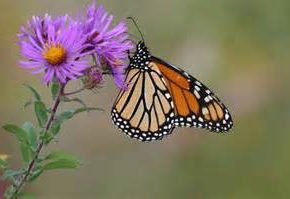http://stlouis.cbslocal.com/2016/08/15/case-against-maplewood-weed-lady-will-be-heard-in-st-louis-county
http://ksdk.com/news/local/maplewood-woman-faces-citations-for-tall-flowers-and-milk-weeds/295364245
Category Archives: MAHONEY
Essay from Donal Mahoney
Essay from Donal Mahoney
Essay from Donal Mahoney
Why Did You Write That?
Anyone who has written fiction or poetry probably has been asked at one time or another, “Why did you write that?” I’ve been asked that question and I have never been able to provide an answer.
Some writers may set out to write a poem that will address an important question about life, such as who we are as human beings and what purpose, if any, we have on Earth. I have never tried to write a poem like that. Nor have I ever written a poem knowing in advance what it might say. I just write down “words” that come to me, provided I like the way they sound and like their “rhythm” when heard together.
I might be sitting in a diner or in my living room and “hear” a few words that sound as though they belong together and so I jot them down, often on a napkin or scrap paper. Maybe an hour or a week later, those same few words will “give birth” to a few more words that seem to fit with their “parents” so I add them to the scrap paper. When I have enough words, I make my first conscious decision to do something with them. I add verbs or nouns and whatever else is needed to add structure. Eventually I have sentences which I then break into lines, according to sound and inflection. End breaks are important to me. Next I try to determine what the poem, if anything, is trying to say. And that’s not always easy.
I have never been impressed with adjectives and adverbs. I like concrete nouns and strong verbs that drive those nouns wherever they need to go. Sometimes they never go anywhere. Sometimes they “sleep” for a long time, technically alive, but not developing into anything. It’s as if they were an ovum needing semen to become an embryo. But no matter how long a group of words may lie dormant, I never abort them because some day I may know what to do with them and they might develop into a poem.
Essay from Donal Mahoney
Essay from Donal Mahoney
Back Then and Write Now
When I began writing in 1960, there were no website “magazines.” Print journals were the only place to have poems published. Writers used typewriters, carbon paper, a white potion to cover up mistakes and “snail mail” to prepare and submit poems for publication. Monday through Friday I’d work at my day job. Weekends I’d spend writing and revising poems. Revising poems took more time than writing them and that is still the case today, decades later.
On Monday morning on the way to work, I’d sometimes mail as many as 14 envelopes to university journals and “little magazines,” as the latter were then called. Some university journals are still with us. Some are published in print only and others have begun the inevitable transformation by appearing in print and simultaneously on the web.
“Little magazines,” especially those published in print without a presence on the web, are rare in 2012. One might say, however, that their format has been reincarnated in hundreds of website publications that vary in design, content and frequency of publication. Depending on the site, new poems can appear daily, weekly, monthly, quarterly, semi-annually or annually. For many writers, these websites are a godsend. Some “serious” writers, however, still feel that a poem has not been “published” until it has appeared on paper.

